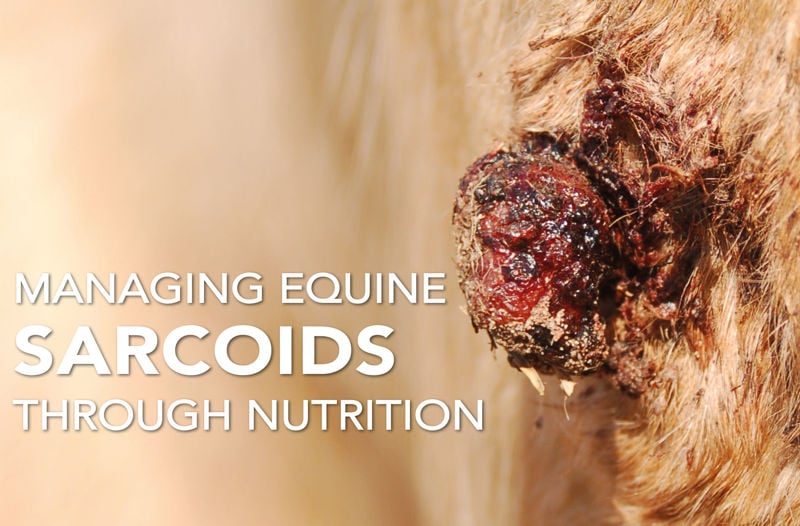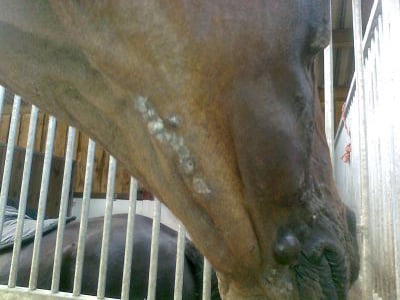Written by Registered Nutritionist Stephanie Hyland (MSc. RNutr.)
What are Sarcoids?
Sarcoids are a type of skin cancer which are unique to horses and other equids. Sarcoids affect between 2 – 8% of the equine population and account for 40% of all equine cancers. The age group most commonly affected is 1 – 4-year-olds however horses of all ages can develop sarcoids. They are a locally invasive tumour which means that they don’t spread to other organs. Fibrosarcoma’s (sarcoids) are non-painful and non-itchy. If your horse has painful lumps, these are often related to infection, and itchy lumps are generally associated with an allergy.
Equine sarcoids are caused via infection with bovine papilloma virus, however, not every horse that is infected with BVP will develop sarcoids as it is only equids with an inherited genetic susceptibility that will develop sarcoids when exposed to BPV. Once these genetically susceptible horses have developed sarcoids, they will always be at risk of developing more even after treatment as the virus incorporates itself into the DNA of infected skin cells and causes those cells to transform into tumour cells.
There is no current evidence to suggest that sarcoids can ‘spread’ from horse to horse, therefore, horses that are affected by sarcoids are not a threat to others.
There are 6 main types of equine sarcoids:
Occult – the least aggressive form or Sarcoid.
Occult sarcoids look like an area of altered or missing hair with a mild thickening of the skin. These types of equine sarcoids are commonly found on the nose, side of the face, armpit and groin area.
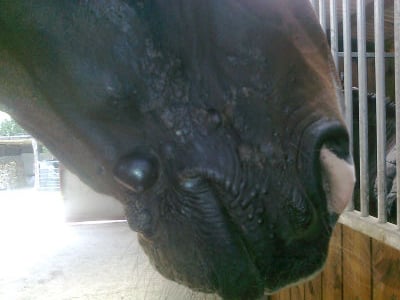
Occolt sarcoids are commonly found on the nose and side of the horse's face
Verrucose – slow growing and benign.
Verrucose equine sarcoids have a wart like appearance and are often grey in colour with a scaly surface.
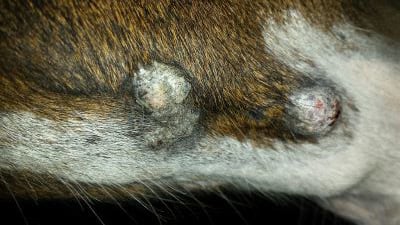
Verrucose equine sarcoids
Nodular – clearly defined lumps covered by normal skin.
These types of equine sarcoids are usually spherical but may have a wide flat base or a narrow stem-like base and can occur singularly or in groups. Nodular sarcoids tend to get bigger with time but the timescale varies and can be fast or slow and they may change to fibroblastic sarcoids.
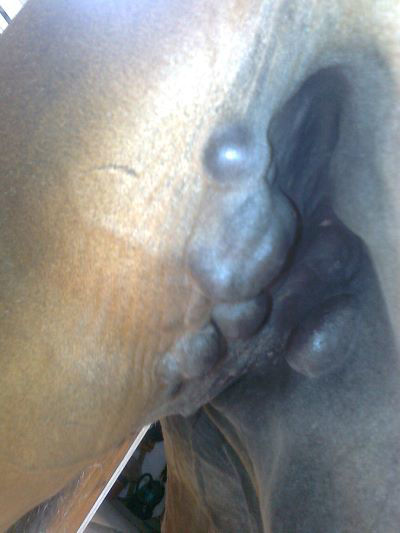
Nodular sarcoids tend to get bigger with time
Fibroblastic – aggressive tumours that grow rapidly.
These tumours are invasive and can invade down into the tissues underneath the horse's skin. As they grow rapidly, they are usually ulcerated and will bleed when traumatised. These sarcoids tend to grow in clusters and have an irregular appearance.
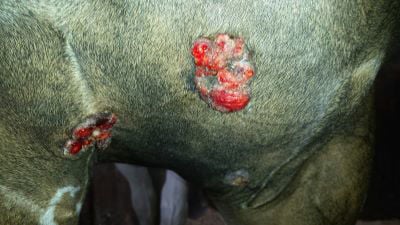
Fibroblastic tumours grow rapidly, they are usually ulcerated and will bleed when traumatised
Mixed sarcoids – combinations of the above types of sarcoids.
Commonly seen as multiple types of sarcoid present around the horse.
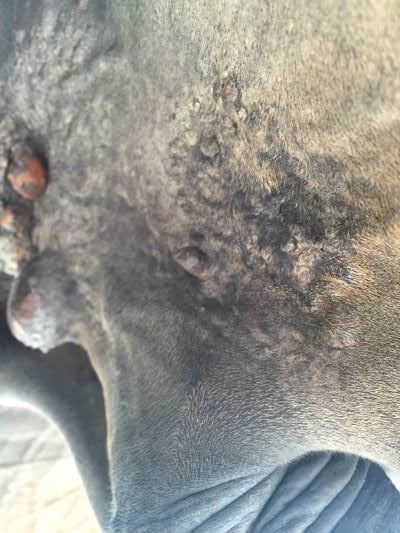
Malignant sarcoids – uncommon but the most aggressive type of sarcoid.
These types spread locally via lymph vessels producing lines of sarcoids in the skin. There is no effective treatment for this type of equine sarcoid.
Malignant sarcoids spread locally producing lines of sarcoids in the skin
Sarcoids can occur on any location of the horse's body but are most commonly seen on the eyelids, limbs and on the underside of the body. The main problem with sarcoids is the expensive and unguaranteed success of treatment. Other problems can be caused by flies irritating the lesions / the horse, infected sarcoids, the sight of the sarcoid especially if they come into contact with tack which can rub, or if you intend to breed from the horse or intend to sell them.
How to treat sarcoids on horses:
Sarcoids are unpredictable and therefore there is a vast variety of treatments available. No one single treatment will work for all types of equine sarcoids so individual factors must be considered to select the correct type of treatment. The most successful way of treating sarcoids is to begin treatment when they are small and manageable.
Types of treatment for equine sarcoids include, but are not limited to:
- Surgical options
- Vaccination against Bacillus Camette Guerin (BCG) injected into the tumour
- Chemotherapy
- Topical creams
- A balanced diet to help ensure optimal health.
The recurrence of sarcoids is often reported as one of the biggest problems horse owners face. Preventing the re-emergence of sarcoids as well as the further growth of existing sarcoids are two aims when dealing with horses prone to sarcoid skin cancer.
If you would like any advice or have any questions please get in touch by calling 0800 585 525, or by emailing [email protected].


